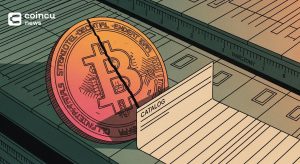Michael Saylor Publishes Digital Assets Framework to Boost Crypto Market
Key Points:
- Michael Saylor supports President-elect Donald Trump’s proposed Bitcoin reserve, which aims to generate $16–81 trillion to offset the national debt.
- The Digital Assets Framework seeks to expand global digital markets significantly, boosting digital currency markets from $25 billion to $10 trillion.
MicroStrategy founder Michael Saylor endorsed a strategic Bitcoin reserve in a sweeping digital asset policy framework proposed by President-elect Donald Trump.

Read more: Michael Saylor’s MicroStrategy Is Now Added to the Nasdaq 100 Index
Digital Assets Framework to Expand Global Markets
The “Digital Assets Framework”, released Friday, articulates a vision of U.S. leadership in cryptocurrency markets in concert with regulatory clarity, compliance standards, and rights for crypto asset holders and companies.
The proposal advocates increasing digital currency markets from $25 billion to $10 trillion and global digital capital markets from $2 trillion to $280 trillion, ensuring that U.S. investors will get the lion’s share of this wealth. Another objective is growing the greater digital asset markets beyond Bitcoin, from $1 trillion to $590 trillion, ensuring U.S. leadership.
U.S. Positioned to Lead Global Crypto Economy
The Digital Assets Framework centres on a national Bitcoin reserve that he estimates could create $16 to $81 trillion in wealth to offset the national debt and fortify the U.S. Treasury.
Saylor says such a move is essential to maintaining the dollar’s dominance in the global economy by establishing the U.S. as a global crypto hub. He has previously compared the U.S. dollar to a “melting ice cube,” emphasizing the urgency of such initiatives.
The publication comes as the crypto market is facing turbulence. Bitcoin recently sank from $108,000 to $92,000 after hawkish comments from Federal Reserve Chair Jerome Powell, only to rebound to $97,000.
Saylor argues that these policies could make the U.S. a leader in the digital economy and could even wipe out the national debt of $36 trillion.
| DISCLAIMER: The information on this website is provided as general market commentary and does not constitute investment advice. We encourage you to do your own research before investing. |






















